Don’t Let it Loose!
In the U.S. and worldwide, ownership of marine aquariums is on the rise. In Hawai’i, we are also seeing an increase in the possession and release of non-native marine aquarium species into Hawai’i waters. Some releases are likely by hobbyists who didn’t realize that better options exist, such as rehoming for legal species or surrender via the State’s Amnesty Program for illegal species. Other recent releases appear to be from individuals purposefully “outplanting“ non-native species onto the reef for later harvest and sale—both are illegal and can cause significant harm to the environment.
The Waikīkī Aquarium takes seriously its dual roles of education and conservation, and we are proud to partner with the Department of Land and Natural Resources – Division of Aquatic Resources and the Hawaii Department of Agriculture, the Hawaii Invasive Species Council, and the Coordinating Group on Alien Pest Species in a new awareness campaign.
The Waikīkī Aquarium has long been a partner and drop-off location for illegal aquarium species. Here are a few examples of some of these illegal species:

(Unomia stolonifera)
Native to Indonesia, this illegal soft coral was recently detectedin Pearl Harbor. Surveys show it has spread to nearly 80 acres. Eradication efforts are underway. Photo: U.S. Navy
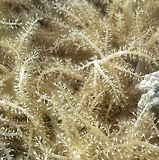
(Capnella spicata)
Native to Africa and the western Pacific, his illegal soft coral was detected in 2023 and eradication is underway. Photo: U.S. Navy
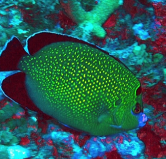
(Apolemichthys xanthopunctatus)
A pair was recently found in an area that also contained other popular but illegal aquarium species including hammer coral. Photo: Jim Maragos
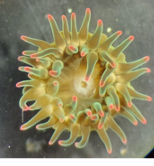
(Anemonia manjano)
Native to the western Indo Pacific, this quarter-sized anemone can multiply and spread quickly in a variety of habitats. It’s presence was discovered in waters off Ford Island in 2023. Photo: Bishop Museum
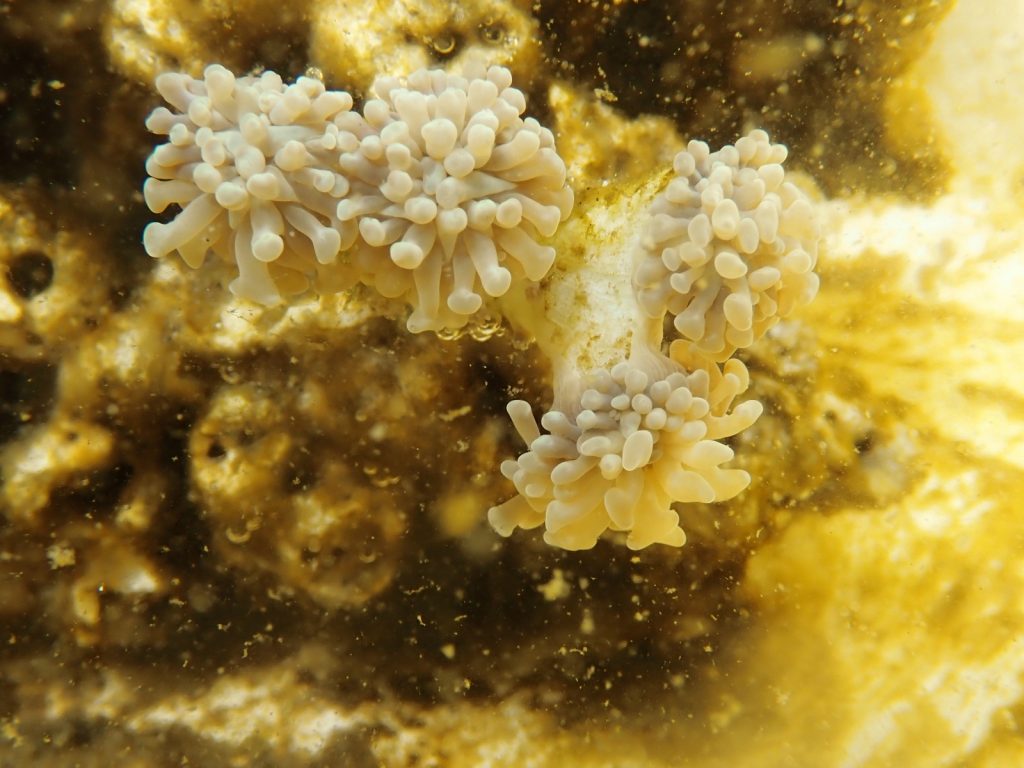
(Frimbriaphyllia paraacora)
Aquarium hobbyists likely released hammer coral into Pearl Harbor at Bishop Point and Ford Island. Hammer coral can grow quickly and smother Hawaiian coral reefs. It can also spread disease and lower the diversity of fish in the area.
Partner Links
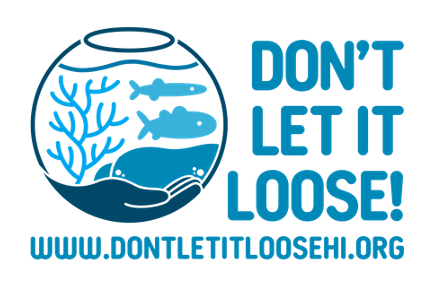
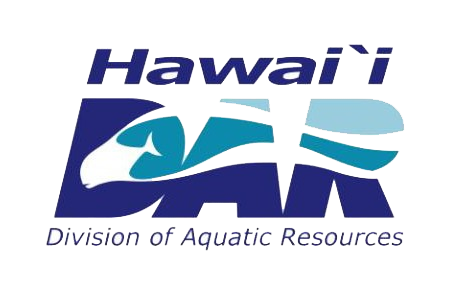
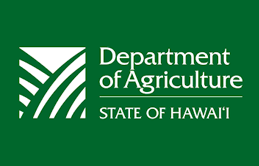
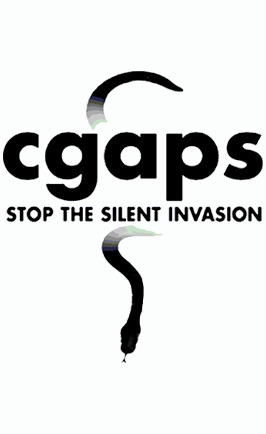
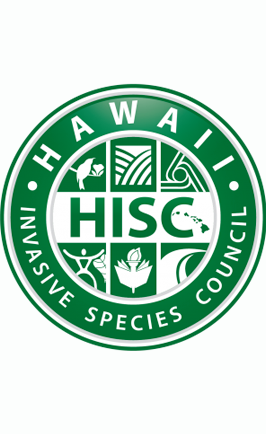


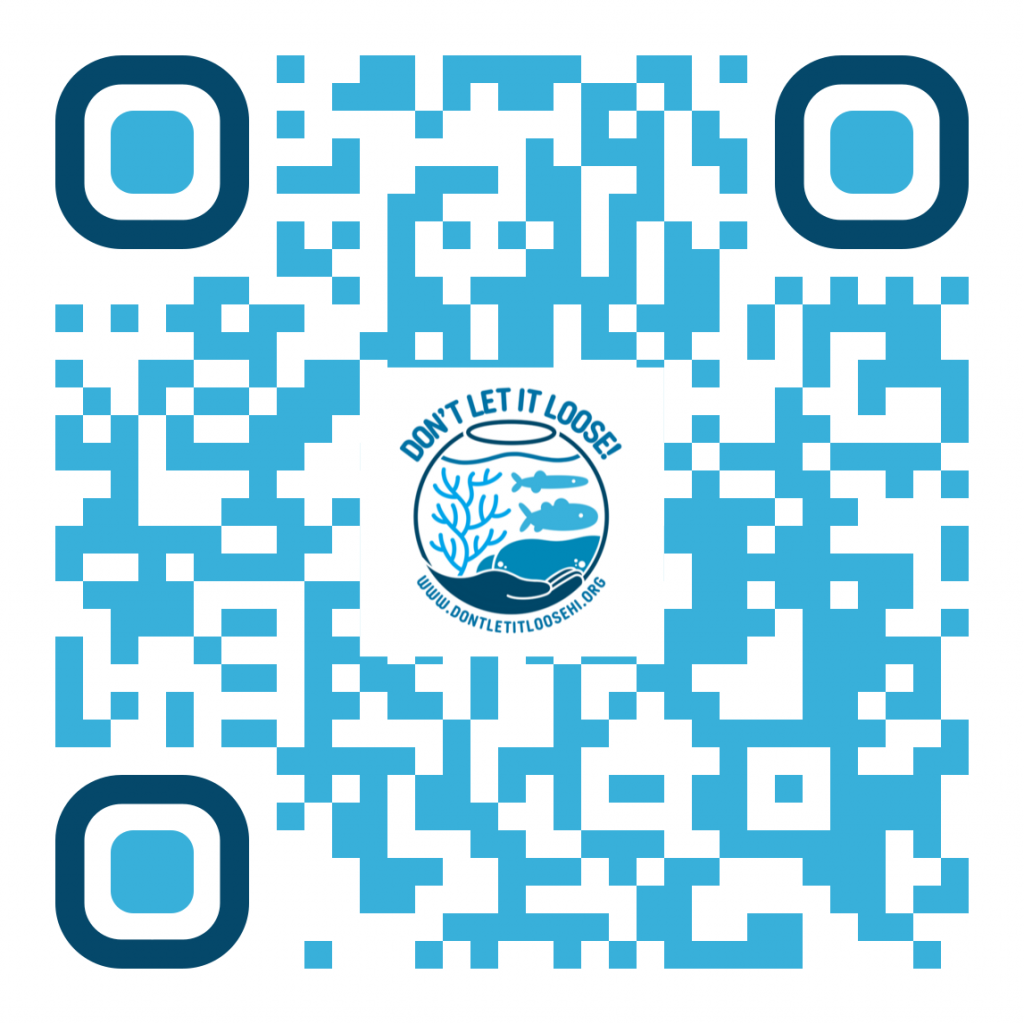

Get Involved
Call a group of friends to get together and join us at our quarterly beach clean-ups or invasive algae pulls. Check our website on invasive algae cleanups, check our website on beach cleanups, or email the Volunteer Office at volunteer@waikikiaqurium.org for more information.
Take Action

- Reduce the use of plastic water bottles.
- Start a recycling program at home.
- Use biodegradable sunscreen. These products are better for you, and for the environment.
- Conserve water.|
- Invest in reusable bags (a plastic bag ban is in effect in Hawai’i). Click here for more information on the ban.
- Do not litter.
- Be considerate of marine life. As enticing as it may be, don’t feed marine animals or disturb them or their natural habitats. Leave no footprint on the ecology of our seas.
- Check for water run-off into the ocean and be mindful of what enters your storm drains.
- Use environmentally safe cleaning producis and dispose of chemical products properly.
- Get involved! Whether it’s picking up a single piece of trash, getting the word out, or joining us for a beach clean-up on World Oceans Day; every little bit helps.
Reminders:
- Releasing marine aquarium organisms into Hawai‘i waters is illegal and can harm our reefs. Always rehome, never release.
- In Hawai‘i, it is illegal to import and possess most non-native marine aquarium animals.
- Individuals found to be possessing illegal animals may be charged with a class C felony, face fines of up to $200,000, and three years in prison.
- Only buy from reputable local pet stores and when in doubt, keep it out.
- Voluntarily surrender illegal marine aquarium species through the Hawai‘i Department of Agriculture’s Amnesty Program without fear of penalty. Every effort will be made to re-home the animal.
- Drop-off locations include the Waikiki Aquarium, any Hawai‘i Department of Agriculture Plant Quarantine Office, or call (808) 643-PEST (7378).
- Tips regarding illegal animals may be made confidentially to (808) 643-PEST (7378).
Support the Aquarium
Contact Us
Honolulu, HI 96815
(808) 923-9741
Search
- Already a Volunteer?
- Click Here To Sign In


 Donate
Donate
